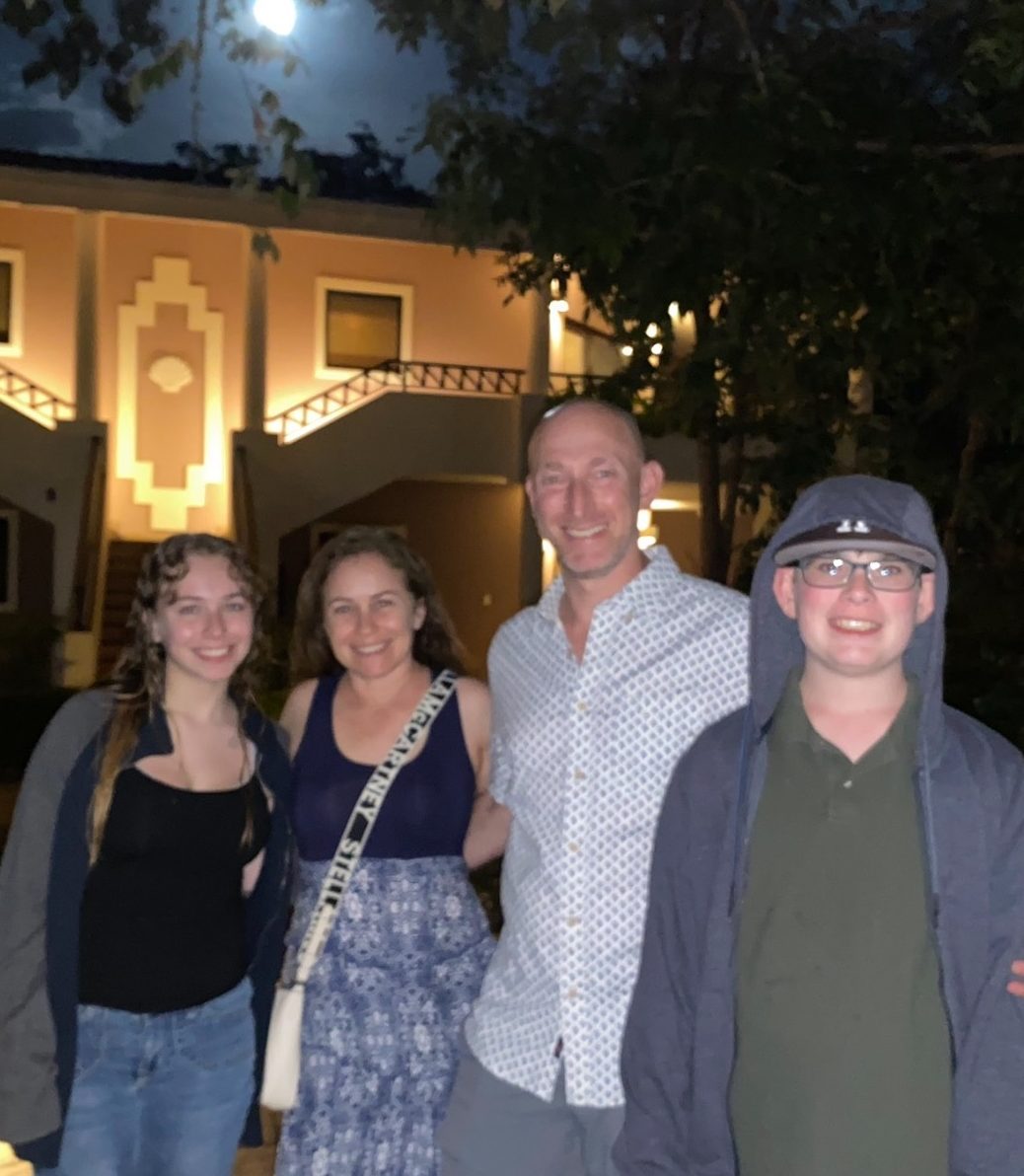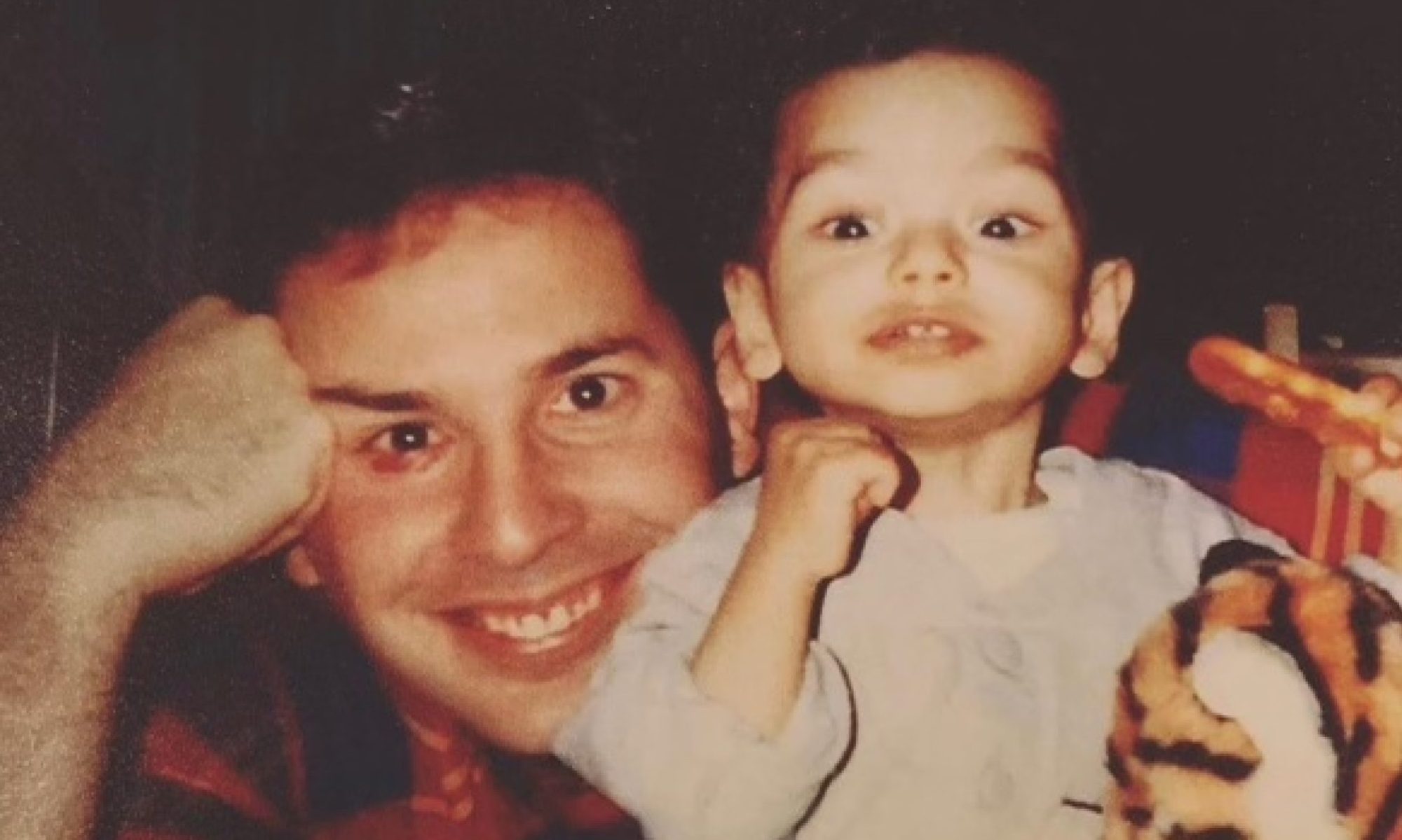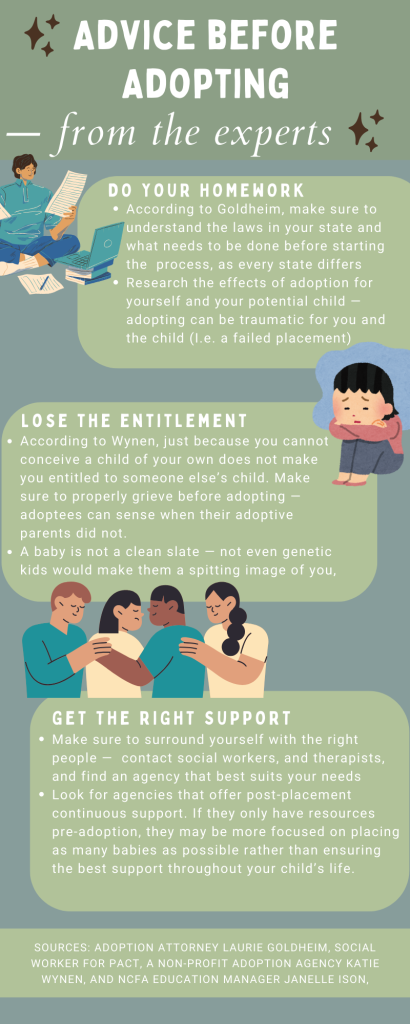Reframing Open Adoption and Adoption Trauma
Birthdays have always been a little stressful for Natalie Humber, waiting and wondering if she would hear from her birth mother.
Contact between her family and her birth mother has always been open, but it would be unlike her birth mother to reach out randomly. She typically only hears from her mother around special occasions, especially her birthday.
She understands — her birth mother is probably thinking about the daughter she placed for adoption however many years ago on that day, but for Humber and other adopted people, birthdays come with conflicting feelings.
“You want to celebrate your birthday and be with your friends, but now I’m wondering, is my birth mother going to contact me? What is she going to say?” Humber said.
Humber was adopted by a family in Washington directly after her birth in Oregon 21 years ago. Her adoptive parents were in the room when she was born. Her adoptive mother even made a scrapbook where they have a calendar of the entire adoption process.
Humber’s adoption was a domestic, private open adoption, which means she was adopted from the United States to a family in the United States through a private agency, with open contact with her birth family. If Humber wanted to contact her birth mother, the option was there.
Learn more about open adoptions and the different kinds of adoptions above
Depending on the type of adoption, there are typically varying levels of openness, according to the National Council for Adoption (NCFA), or contact between birth and adoptive families. A closed adoption has no contact.
Janelle Ison, NCFA’s education manager, said in recent years more families are being encouraged to think about open adoption.
In the past, there was a fear that open adoptions would be harmful to the child and it would be better to completely cut contact with their birth families. The first research indicating that openness may be better for the child came out in the 1970s, and the research supporting openness has been increasing since then.
Studies have shown that open adoption increased satisfaction with the adoption for adoptees, adoptive parents and birth parents. Other benefits include access to more detailed health and background information across time and “a stronger sense of cohesive identity” for adoptees.
“[Teen age] is when things start coming up, especially identity formation,” Ison said. “There’s this duality of ‘I love my adoptive family, but I also need to know where I came from.”

“…maybe they’ll think I’m ungrateful for all that they’ve done,”
Humber recalled sometimes feeling guilty asking her parents about her birth mother, even though they were always kind and open about communication with her. They would offer to pass along questions or recap emails or calls, though Humber never had much interest in contacting her birth mother herself.
“Even though it is not true, it really feels like, oh ‘maybe they’ll think I’m ungrateful for all that they’ve done,” Humber said.
In the case of Keith Lavitt and his family, it made sense to have a relationship with his son’s birth mother. They had always had ongoing contact with his birth mother, though for many years, the only communication was a yearly letter. After his son, Max, became a teenager, he expressed interest in getting to know her more, and they developed a deeper relationship with his birth mother and her other children.
Max, now age 15, has four other siblings. One his birth mother raised herself, and three others all adopted by separate families. Last January as a belated Christmas celebration, the families all decided to get together.
“Previous generations and even today people are nervous about having an open adoption, and not every circumstance is the same, but I think it’s amazing to have this open relationship.” Lavitt said. “He identifies with his birth family, and it’s important to him, and I would hate not to have given him that opportunity.

“There is a strong bond that doesn’t in any way weaken the bond we have with him.”
“I think it’s important for my son to fully know who he is and where he came from and that his birth family loves him — it’s a part of his story and I’d rather it be a part of his life than a mystery to him,” Lavitt said. “They look alike, and deal with some of the same challenges in life — there is a strong bond that doesn’t in any way weaken the bond we have with him. If anything, it makes it stronger.”
Adoptees may not only face guilt when it comes to curiosity about their birth families. Katie Wynen, a social worker for Pact, a child-centered anti-racist nonprofit adoption organization, said some adoptees feel guilty about facing struggles associated with their adoptions.
“I’ve had plenty of adoptees who were like, ‘well if I wasn’t adopted I’d be dead on the streets,’” Wynen said. “You can love your adoptive parents and you should be able to acknowledge the grief and the loss that you’ve had, because all of us have had it.”
Many people still incorrectly believe that adopting infants would be a “clean slate” compared to adopting an older child because they think older children are more at risk of having experienced trauma. But according to Wynen, an adoptee herself, all adoptees face some level of trauma, as the separation itself is a traumatic experience, no matter the age.
“I was in a whole other country so I lost every sight, smell, sound, vibration I was used to”
“It’s trauma, no matter what. Even if you go from the vaginal canal directly to your adoptive parents’ chest, your body remembers losing whatever it knew for nine months, and now it’s yanked and gone, and for a lot of us, myself included, I was in a whole other country so I lost every sight, smell, sound, vibration I was used to,” Wynen said.
Wynen feels that society as a whole tends to ignore the trauma that adoptees face. According to Wynen, suicidal ideation, anxiety, depression, ADHD, and other mental health disorders are more prevalent for adoptees. One study focusing on people who were adopted as infants shows that they were almost twice as likely as a non-adopted person to see a mental health professional and be diagnosed with a behavioral disorder.
According to NCFA’s education manager Janelle Ison, adoption trauma is understanding that regardless of age, no child is a blank slate. The most difficult part is understanding that trauma is not always physical, though in some cases it may be. It can also be something like in-utero impact — substance-use exposure, or stress.
Transracial or intercountry adoption can have their own traumatic effects.
Emma Denton, an international adoptee from Russia who grew up in Canada, believes that international adoptions should be the last resort, as outlined in the UN Convention for the Rights of the Child, which Canada is a party to — the United States is not. Now working in mental health, she recognizes how her adoption affected the rest of her life.
“Having rotating caregivers, not having a primary one for the first year or so of your life, has pretty significant impacts,” Denton said. “That has problems, and it leads me to kind of feeling the way I do today – I still struggle with addiction and self-harm, and I don’t know when that’s going to go away.”
According to social worker Wynen, it can be a trauma to lose all your culture, even if you love and are grateful for the family that you have. It can be difficult to grow up around people who look nothing like you or cannot understand some of your struggles, though same-race adoption does not necessarily mitigate these problems.
Through Pact, Wynen runs an adult-adoptee support group that are all people of color. While there is a strong mix of international and same-race adoptions, most participants were adopted by white parents. After the murder of George Floyd in 2020, everybody “got called to task,” even in the adoption industry.
“All the sudden, all these adoptees of color just flooded out of nowhere because their white parents couldn’t understand why they were protesting and shouting for black lives matter, or their parents were like, if there’s a race war, what side would you choose?” Wynen said. “The parents are thinking they would choose the white side.”
Wynen believes that transracial adoption, specifically white parents with kids of color, should be abolished. She’s seen benefits of same-race adoption, but in a perfect utopia, abolitionist’s goal would be the end of adoption, with a focus on access to adequate reproductive care and education, family preservation and kinship.
Ka Hee Krause, an adoptee from South Korea with white parents, wouldn’t go as far as abolishing adoption completely, but she does wish people understand how traumatic adoption can be for an adopted child, especially if they do not adopt for the right reasons. While she knows there are genuinely good people with the right mindset of wanting to raise and love a child, she can’t help but consider those who are in it for themselves.
“Some parents who adopt children are more so like, ‘Look how amazing I am for providing for this child who would have otherwise had nothing’ — I think that’s why a lot of white families adopt internationally,” Krause said. “There’s people who want these children as trophies, to be on display to say ‘look how good I can teach this kid,’ but beyond a facebook post or a brag to their friends, the children get neglected or abused at home.”
While there is little research or data about how often this occurs, according to the National Council for Adoption, the current narrative globally around international adoptions for many people, is similar to Krause’s; that many white North Americans are “colonial trophy-collectors.”
But a report released by the National Council For Adoption found that a majority of adult adoptees are not only satisfied with their adoptions, and support intercountry adoption if family reunification or domestic adoption are not possible. The survey consisted of adult adoptees, and another finding was that though many adoptees wished for post adoption services, few received them.
Denton is no exception. Denton wishes that her family gave her more resources, especially regarding her mental health. Like Krause, Denton is an international adoptee, and agrees that it is important for adoptive parents to have the right intentions. They need to be ready to take responsibility for providing post adoption support and be willing to have difficult conversations.
“I don’t want to fault my adoptive parents because parenting in itself is such a massive responsibility and you’re going to make mistakes no matter what, but when you’re taking on a responsibility like adopting a kid, there’s a lot more things to think about — be ready and willing to accept that things are out of your control.”
Part of Denton’s struggle growing up was her desire to know more about her birthplace and her birth family, much to the dismay of her adoptive parents.
“I had never seen my birth mother, I hadn’t had any photos, I just knew her name. I’d go through files in boxes in our old house and just read about my information,’ said Denton.
There are some adoptive families who are still uncomfortable with the idea of their children having contact with their birth families.
According to Ison, when families do not support their child’s wish to meet or contact their birth families, she suggests that they reconsider and look at the research and the education, and put aside their own ego for the sake of their child.
“I found my birth mom about 10 years ago, and we just have a friendship. My parents were very supportive of me doing so my whole life,” said Ison. “It’s not what people think — they want to know and find a connection, they don’t want to go find another family.”
Despite her parents not wanting her to, Denton contacted her birth family during college. At the time, she was struggling with complications from long-term marijuana that suppressed her appetite, losing about 50 pounds in a year.
While Denton had always wanted to meet her birth family, Humber feels less sure.
“It’s very complicated because I have an opportunity to reach her. I don’t feel like I’m ready now, but also what if something horrible would happen and I know I could never talk to her again? What happens if I wait too long?” Humber said.
Ison, an adoptee herself, can relate to Humber’s experience. She also had her birth mother’s contact information, and often went back and forth about when she should reach out to her. There isn’t always a clear-cut decision, but Ison’s personal advice would be to go with your gut.
“If it doesn’t feel like the right time, maybe it isn’t. And when the time comes, you should feel ready and prepared for what could come from it,” Ison said.

